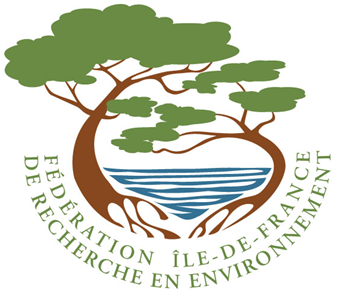UMR Géographie-cités comprises some 60 researcher-lecturers or researchers, engineers, technicians and more than 70 phD students, engaged in research combining theoretical and epistemological approaches, qualitative and quantitative methods, and empirical and comparative procedures.
Three research teams with complementary objectives make up this UMR: The C.R.I.A research team, The E.H.GO research team, The P.A.R.I.S research team.
Research work is organized according to seven key themes and to one transverse subject.
C.R.I.A Research Team
Centre de recherches sur les Réseaux, l’Industrie et l’Aménagement
Research Centre: Networks, Industry, Planning (CRIA) CRIA’s research used to focus on industrial geography and on territorial planning, but deindustrialization in Western countries has changed the focal point to other economic sectors, such as financial activities or network sectors (transportation, telecommunications). CRIA’s research also puts more emphasis on socio-spatial dynamics, spatial inequalities, and on their relationships with mobility, economic transformations or planning policies. The original discipline of CRIA is Geography, but a pluridisciplinary approach has been adopted for some time, in particular with Economics, Sociology and Engineering science. In terms of methods, this means that particular importance is given to actors in unterritorial planning. Thus, CRIA has formed strong connections with planning agencies, transportation companies and businesses. The team is particularly interested in the Paris metropolitan area, but its research has widened to other industrialized countries.
E.H.GO Research Team
Épistémologie et Histoire de la GéOgraphie
The academic and research activities of the EHGO (Epistemology and History of Geography) team are focused on the critical, epistemological and historical analysis of geographical knowledge and representations. The team investigates two mains fields of research: on the one hand the issues of image, representation and writing in geography and the knowledge of space; on the other, the issue of discourse and social practices developed by geographers.
These activities are conceived both on an international scale and in an interdisciplinary approach. Research Projects are currently being developed with architects, historians, science historians, philosophers, or art critics, on various issues such as:
- Images of the city, past and present;
- Social and cultural history of cartography;
- Contemporary trends in geography;
- Geography and ethics;
- Modernisation of space and spatial representations in modern Europe.
P.A.R.I.S Research Team
Pour l’Avancement des Recherches sur l’Interaction Spatiale
The P.A.R.I.S. research team focuses on two main objects of study: the city and urban systems. Its researchers analyze spatial dynamics, considering that spatial and social interactions play a leading role in these organizations. Spatial analysis and dynamic modeling, enhanced by the contributions emerging in the sciences of complexity, are a particular focus. In addition, practices and representations of different agents are taken into consideration more systematically.
This approach has provide considerable new insight into the issue of relating scales, both spatial – from the neighborhood to the metropolis, from the city to the world – and temporal – slow dynamics in the evolution of urban systems and rapid dynamics in metropolitan areas – and into the question of spatial, social or economic contexts. The main fields, initially French and European, now extended to the USA, Asia and Africa; as a result our research is now systematically put into perspective within a comparative framework.

